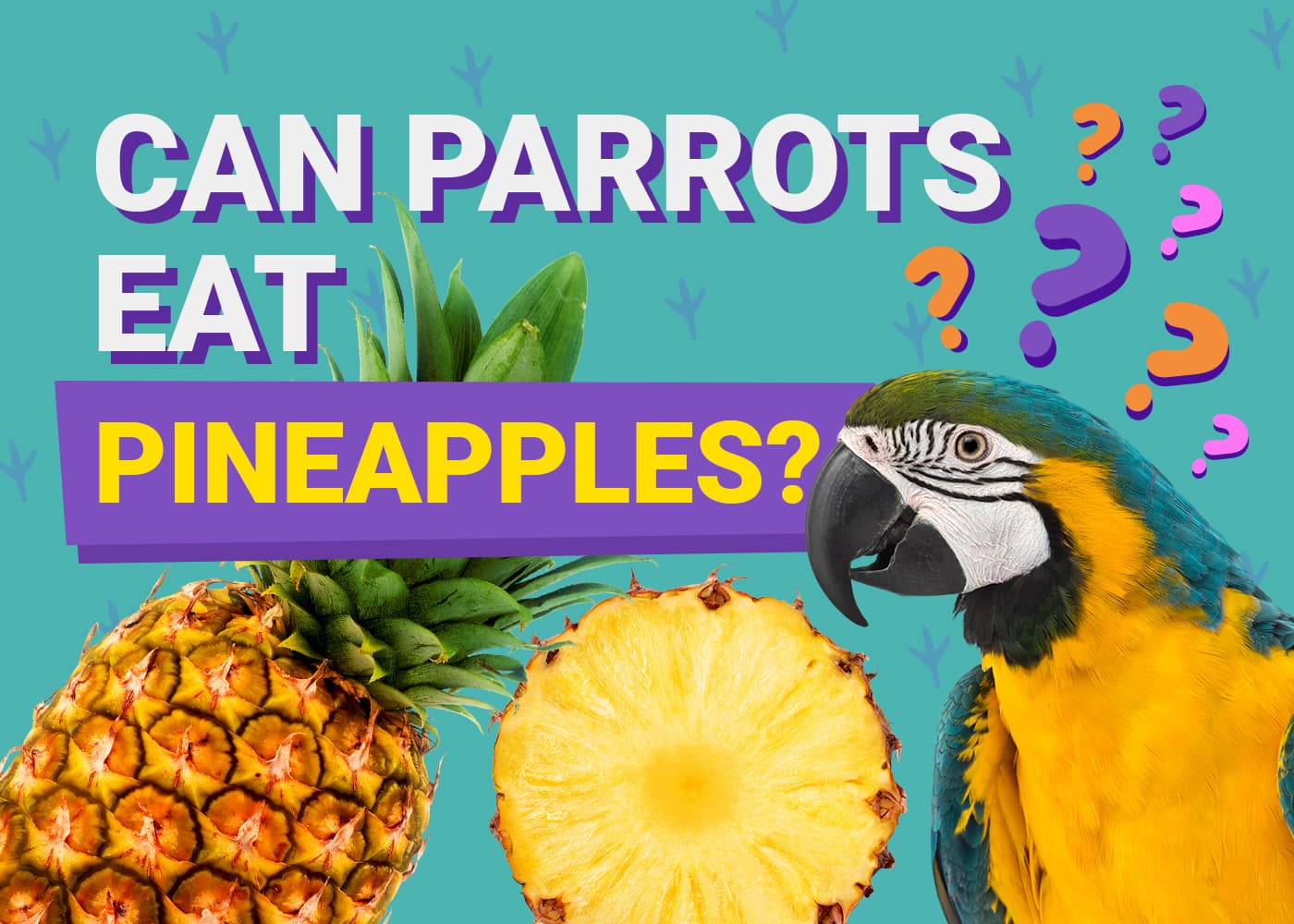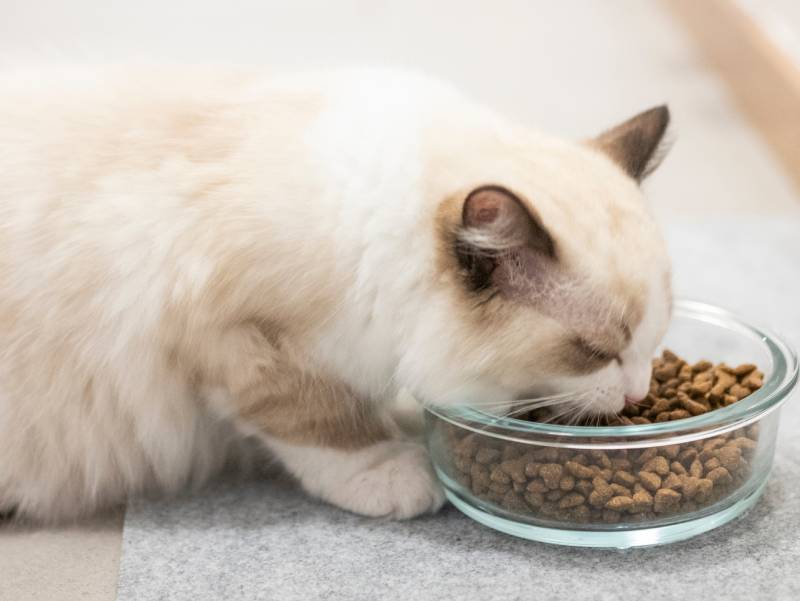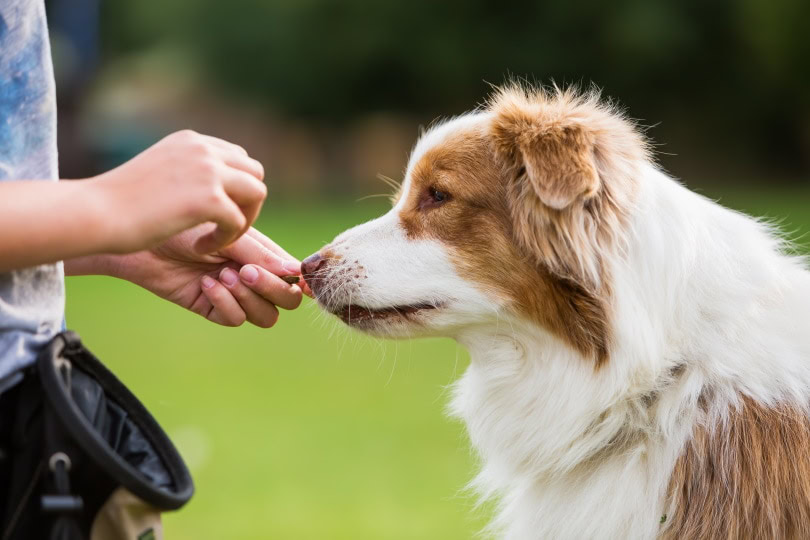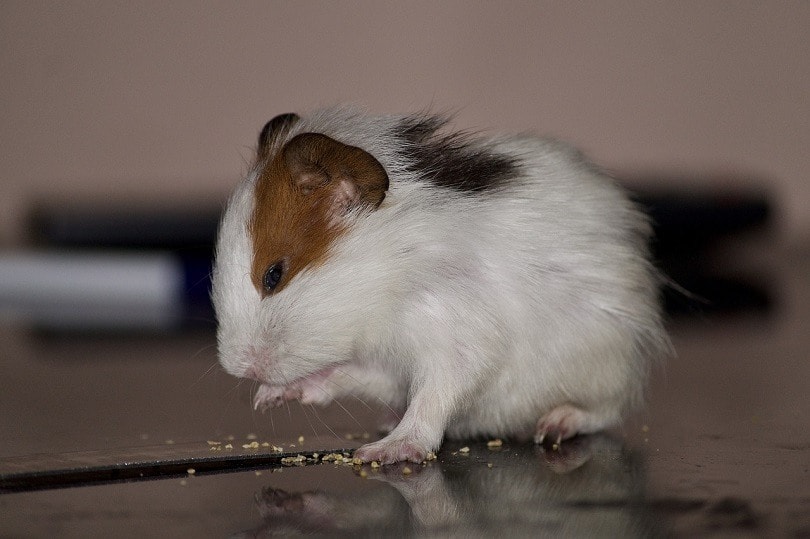VET APPROVED

The information is current and up-to-date in accordance with the latest veterinarian research.
Learn more »Click to Skip Ahead
What’s the first bird that comes to mind when thinking of sandy beaches, fresh fruit, and tropical weather? Parrots definitely enjoy fruit, and you’d think that pineapple sounds like a perfectly healthy treat for your pets, right? Although pineapple is safe for parrots to eat, don’t ever assume that all fruits are healthy for tropical birds.
No parts of a pineapple are toxic or harmful for your pet parrot. In moderation, your birds will benefit from the occasional pineapple morsel. Just make sure that they’re eating a well-rounded diet instead of strictly fruit.

Can Parrots Eat Pineapple?
Pineapple is a non-toxic fruit to parrots, though it doesn’t feature heavily on the menu for many wild parrots. Though parrots are important pollinators in ecosystems, pineapples are primarily pollinated by hummingbirds. The tough, spiny exterior of a pineapple also possibly acts as a deterrent for parrots. Though large parrots could definitely make their way to a pineapple’s flesh, they would rather eat softer and more easily accessible fruits.
Most pineapple grown today is protected from parrots and artificially inseminated. This is due to the economic importance of pineapple; most present-day pineapple plantations are industrialized operations. In these setups, farmers try to protect their crops from birds.
Nonetheless, if you want to show your parrots some love, then a few bites of pineapple is a surefire way to do it.
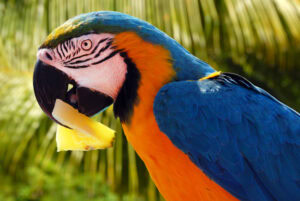
Is the Pineapple Core Safe for Parrots?
The cores of some fruits are not safe for parrots, but this doesn’t apply to pineapples. The core has the same nutritional value as the flesh, but it is less juicy (packs a crunch) than the flesh. Many parrots seem to enjoy this texture more so than the flesh itself, though individual preferences may vary.
Is Pineapple Skin Safe for Parrots?
Pineapples have a thick, sharper outer layer that can often leave bird owners confused about the safety of feeding them to their pets. Parrots can eat pineapple skin, however, given how fruit should be only a small portion of a parrot’s diet and how the skin of the fruit might be covered with substances you can’t see (for example, a pesticide), it’s best if you don’t offer this to your parrot.
Can Parrots Eat Pineapple Leaves?
We all know that a crown of spikey leaves sits on top of a pineapple fruit. They are usually ignored and thrown in the trash because we humans can’t eat them, but parrots can safely eat the leaves if offered to them. They don’t have a lot of flavor, and picky birds might refuse to eat them, but it doesn’t hurt to try and eliminate some food waste whenever possible. However, the aforementioned risk of an unknown or unseen substance on the surface of pineapple skin also applies to the leaves. As such, it might be best to consider offering your pet the flesh of the fruit instead.
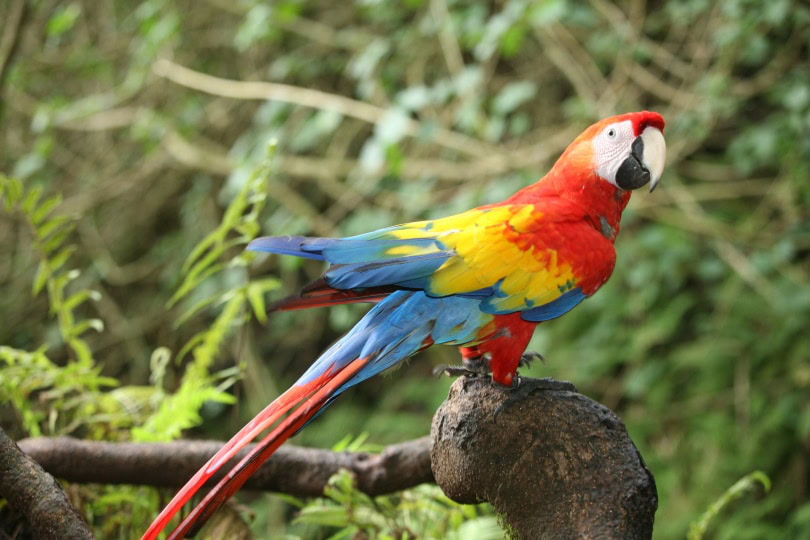

The Benefits of Feeding Pineapple to Parrots
Pineapple flesh is approximately 86% water, 13% carbohydrates (the majority of these are naturally occurring sugars), 0.5% protein, and a near negligible amount of fat. Pineapples are very high in Vitamin C, and while this is fantastic for pets like guinea pigs (because they require this vitamin in their diet), this is not a huge draw for parrots because healthy parrots can make their own Vitamin C.
Though a sick parrot might benefit from Vitamin C added to their diet, pineapple might not be the best way of doing this. Remember that if a parrot is unwell, they might not handle fruit as well as they normally would. As such, your priority with a sick parrot is to have them looked over by your veterinarian instead of trying to offer them pineapple.
Bromelain
Pineapple is interesting in human medicine due to the fact that it contains bromelain. This enzyme, found in all parts of the plant, is frequently studied for clinical disorders in humans. To date, it hasn’t been conclusively proven to be a medicine for human medicine. Though some humans can be allergic to bromelain, it isn’t a reported allergen in parrots.
Studies involving bromelain are limited in birds, and most existing studies have only been performed on chickens. The results of these studies cannot be confidently transferred to parrots, primarily because parrots have a somewhat different digestive system than chickens. For example, chickens possess two ceca (plural of cecum), while parrots don’t have a cecum at all.
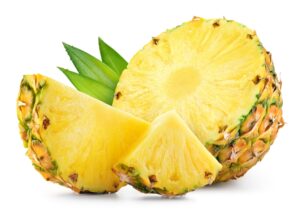

Disadvantages of Pineapple
The fundamental concern with pineapple (and all fruit) is their sugar content. Though it is true that many wild parrot species routinely eat fruits or other calorie-dense foods (such as seeds), it should be noted that they opportunistically feed on such foods because they don’t know when they will eat next (food isn’t guaranteed). In addition, wild parrots fly often and far enough to warrant such a calorie-dense diet. In essence, they have enough energy expenditure to make their diet work.
A pet parrot rarely gets the same amount of exercise that a wild parrot would. They don’t fly over several hundred miles on a daily basis. Even if they do spend time outside their cage, they’re likely comfortable with your presence and would spend a good deal of time not flying – they may instead climb, dance, sing, play with their toys, preen themselves, take a bath, and possibly scream to get your attention.
Nonetheless, the life of a parrot as a pet warrants a different nutritional profile than a wild parrot. As such, for most pet parrots, fruits should only comprise a small portion of a diet. They’re often viewed as only constituting 5–10% of their total diet.
However, fruits are often not regarded as treats, because they are definitely important and something you should incorporate into your parrot’s diet. This distinction is important, because many people consider treats as a “bonus” instead of a necessity.
What Types of Pineapple Are Safe for Parrots?
Fresh pineapple is clearly the best source of fruit for your pet bird. Unfortunately, this can get expensive and isn’t ideal for those of us on a strict budget. So, what types of pineapple are safe for parrots?
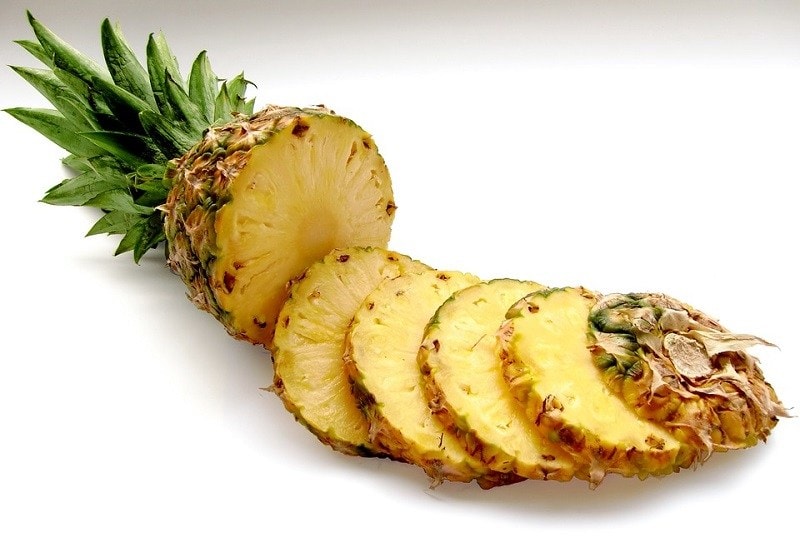
1. Canned Pineapple
While fresh is best, canned pineapple isn’t usually too bad to feed your parrots. Try to refrain from buying brands with lots of added sugars if possible. You can remove most of the sugar from canned pineapple yourself by putting the fruit in a strainer and rinsing it under cold, running water. Look for cans that are labeled with “100% juice,” since heavy syrups lead to weight gain in your pet.
2. Dried Pineapple
Dried pineapple lasts for much longer than fresh pineapple and is easy to store. It is also free from a lot of the unhealthy additives that you get from canned products. The downside to this is that you lose some of the nutrients in the drying process. It is also much higher in sugar than normal pineapple (because it has almost all the water removed). As such, though it isn’t toxic, it isn’t recommended for parrots.
3. Pineapple Juice
Parrots can drink fresh pineapple juice. However, if your parrot doesn’t prefer pineapple juice it’s okay to not force it on them. Parrots shouldn’t be offered any random commercially prepared pineapple juice, as some products might contain additives, sugar, and flavorings which might be unhealthy or toxic for them.

Conclusion
Parrots can definitely eat pineapple in moderation. No part of the pineapple plant is toxic for parrots; however, not all parts might be to your pet’s liking. Keep in mind that just because pineapple is safe for parrots to eat, that doesn’t mean that all parrots are going to enjoy eating it.
Parrots require a balanced diet full of foods other than fruits. Give them food pellets, nuts, seeds, and veggies whenever you can. The more well-rounded their food is, the better health your parrot is going to have. If you’re in doubt about your pet’s nutritional needs, we encourage reaching out to your veterinarian for more information.
- Related Read: Can Parrots Eat Bananas?
Featured Image Credit: Miroslav Halama, Shutterstock
